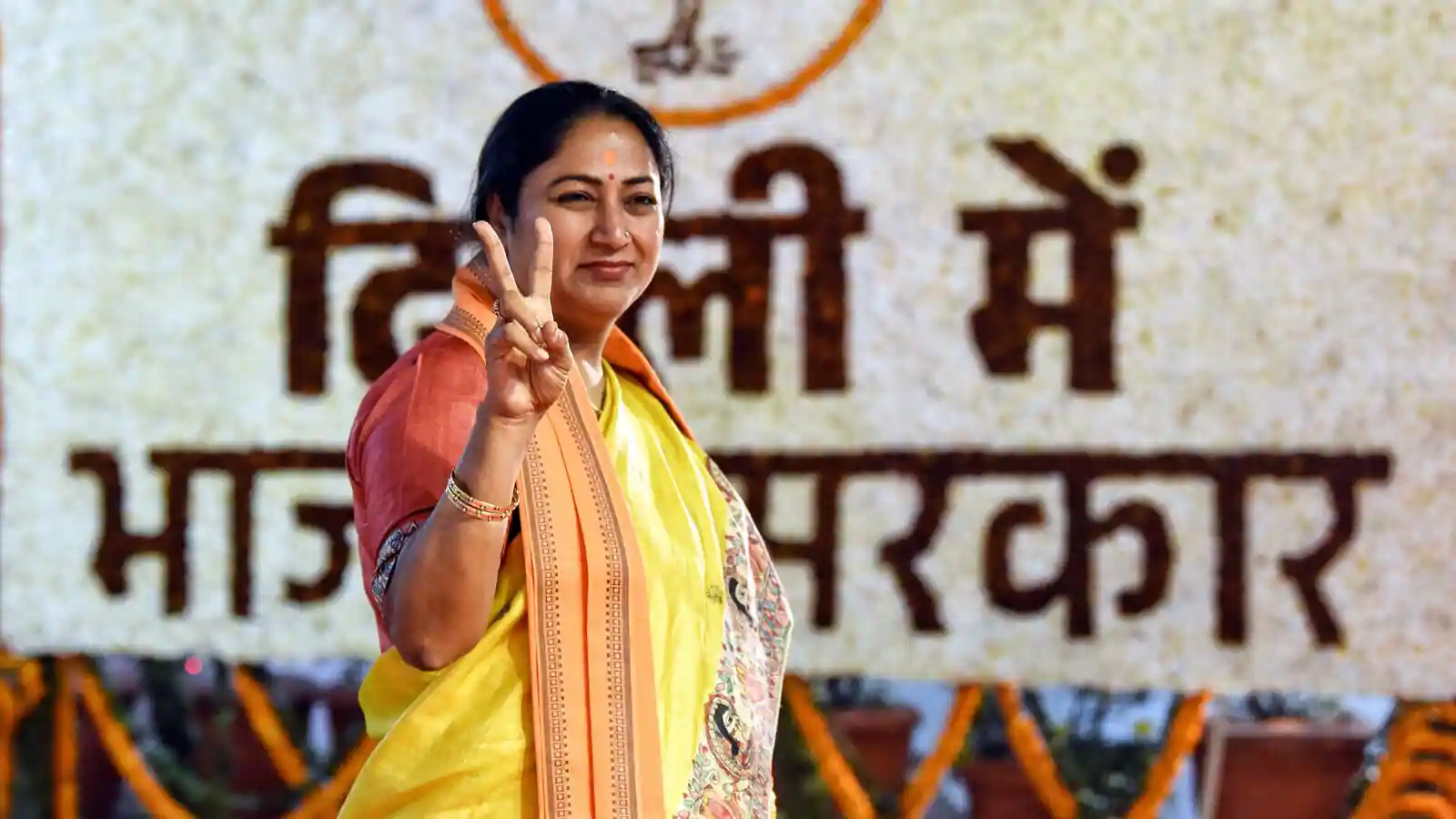Its not surprising that Rekha Gupta is BJP’s choice for Delhi CM

Rekha Gupta Becomes Delhi CM: A New Political Chapter for BJP
Meta Description: Rekha Gupta’s appointment as Delhi CM marks a big step in BJP’s strategy to reshape Delhi politics. Learn what this means for BJP, AAP, and the city’s future.
The suspense has finally ended—Rekha Gupta has been appointed as the new Chief Minister of Delhi, making her the fourth woman ever to hold the position. Her elevation comes after a week of internal discussions within the Bharatiya Janata Party (BJP), which is unusual for a party known for quick decision-making under the leadership of Prime Minister Narendra Modi and Union Home Minister Amit Shah.
This delay highlighted how important this decision was for BJP, especially since Delhi has been a tough ground for the party for the last few decades. With Rekha Gupta at the helm, BJP is clearly signaling a new political strategy for the national capital.
Who is Rekha Gupta?
Rekha Gupta is not new to Delhi politics. She has served as a councillor in the Municipal Corporation of Delhi (MCD) and is known for her organizational work within BJP’s women’s wing and youth front. Her experience on the ground, especially in local civic matters, is seen as an asset.
By choosing her, BJP wants to present a clean, grassroots-friendly, and strong female face to Delhi voters. In a city where women play a big role in voting outcomes, Rekha Gupta could help the party build a stronger connection with women voters.
Why BJP Chose Rekha Gupta
There are a few key reasons why BJP went with Rekha Gupta:
- Appealing to Women Voters: Delhi has a large number of women voters. In past elections, especially during the rise of the Aam Aadmi Party (AAP), women voters played a huge role in shaping results. By appointing a woman CM, BJP is sending a strong message that it values women’s leadership.
- Caste and Community Balance: Rekha Gupta belongs to the Vaishya-Bania community, an important segment for the BJP. Also, many of BJP’s recent victories in Delhi came from areas with a large Purvanchali population (people from eastern Uttar Pradesh and Bihar). Her appointment aims to keep this broad voter base united.
- Changing the Party Image: After 27 years out of power in the Delhi Assembly, BJP needed a new face. Rekha Gupta’s clean reputation, civic experience, and appeal to urban voters make her an ideal choice to lead a political reset.
Delhi’s Complex Political Landscape
Even though BJP has returned to power, AAP is still a formidable force. In the last assembly elections, AAP won 22 out of 70 seats and held a vote share of around 43.57%, showing strong public support. Their focus on social welfare and accessible governance still resonates with large sections of the population.
Additionally, AAP continues to control the Municipal Corporation of Delhi, giving them significant influence over local governance and visibility in daily civic matters.
Challenges Ahead for Rekha Gupta
Being the Chief Minister of Delhi is not just about winning an election—it’s about managing a unique and often complicated governance structure. Delhi is a union territory with a legislature, but many key powers like police, land, and public services fall under the Lieutenant Governor appointed by the central government.
In the past, Arvind Kejriwal and AAP frequently clashed with the Centre over these powers. While BJP may not face the same political friction, Rekha Gupta will still need to navigate this dual structure and avoid administrative delays.
She will also need to act fast on key urban issues like:
- Pollution and Air Quality (System of Air Quality and Weather Forecasting and Research – SAFAR)
- Water and Electricity Management (Delhi Jal Board, BSES Delhi)
- Affordable Housing and Urban Migration
- Law and Order in Coordination with Delhi Police
Public expectations are high, and Gupta’s early months in office will be crucial for shaping her image as an effective administrator.
AAP’s Counter Strategy
Despite its recent loss, AAP isn’t backing down. The party continues to draw support from the urban poor and lower-middle-class voters through popular schemes such as:
- Mohalla Clinics (neighborhood healthcare)
- Free and subsidized electricity and water
- Reforms in public education
These initiatives have helped AAP create a reputation for being the “party of the common man.” With control of the MCD and a solid grassroots network, AAP will aim to highlight any BJP missteps and maintain its support base in future elections.
BJP’s Roadmap for Delhi
With Rekha Gupta now sworn in, BJP’s focus will likely shift toward long-term governance goals. These may include:
- Expanding Metro Connectivity through Delhi Metro Rail Corporation (DMRC)
- Smart City Projects under the Smart Cities Mission
- Digitization of Public Services
- Boosting Urban Infrastructure in newly developed areas
At the same time, BJP will continue to push its larger national narrative of development and strong leadership. The party has already managed to consolidate Hindu votes across caste and regional lines, and now seeks to win the trust of middle-class, women, and migrant voters.
A Turning Point or Temporary Gain?
It remains to be seen whether Rekha Gupta’s appointment signals a long-term shift in Delhi politics or a short-lived political gain. But for now, BJP has done something it hasn’t in decades—placed itself at the center of power in Delhi’s assembly politics.
The coming months will test Rekha Gupta’s ability to deliver results while staying aligned with the central leadership’s larger goals. If she succeeds, this could mark the beginning of a new era in Delhi’s political history—one where BJP not only governs from the Centre but also leads from the Capital.
Related Reading & Resources:






